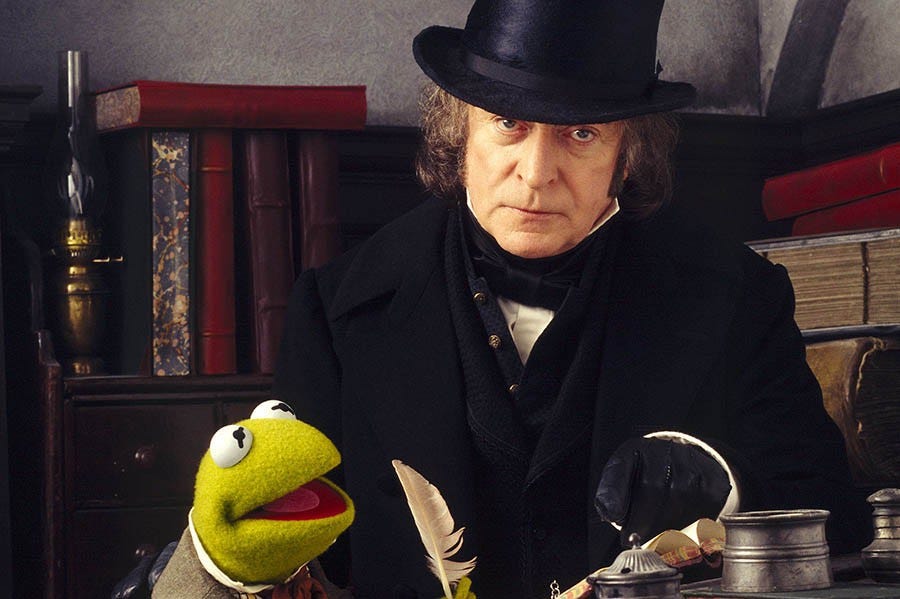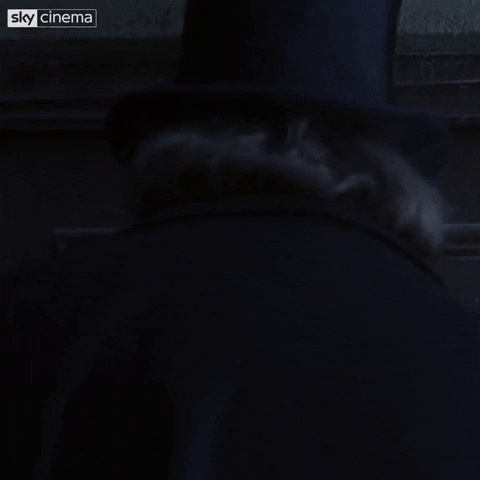One Reason Michael Caine's Ebenezer Scrooge is Transcendent
A Muppet Christmas Carol + Soul Care
There are a lot of reasons that Michael Caine’s portrayal of Scrooge in A Muppet Christmas Carol is THE definitive version. He’s bringing Shakespeare-level intensity to a children’s film where most of his employees are rat puppets. He delivers the line about Fozziwig’s Rubber Chicken Factory with the seriousness of a monologue from Hamlet. Caine is playing this completely straight; surprisingly faithful to the literary work that inspired the film. But I think the deeper reason is this: his Scrooge is a real person, not a villain. With a window into his soul, we feel empathy… because we can see ourselves staring back.
This deep humanity is demonstrated by Michael Caine’s sheer audacity to portray Scrooge as naive. This stands in contrast to most other actors’ choices. When we journey with him to his past as a boy in boarding school, we don’t find a villain. Quite the opposite. We find a very lonely, somewhat sad, little boy. Scrooge is more isolated than he is angry. He’s an afterthought to his classmates who have come to expect Ebenezer being left alone at Christmas. They don’t seem to dislike him, just don’t know him or care for him. This is where the seeds for the “heartless” Scrooge persona were planted. Loneliness, darkness, isolation and cold.
For lack of a better illustration, we see through Caine’s portrayal that Scrooge is a mask that the young Ebenezer starts wearing very early in his life and he never grows out of. His response to the world was formed as a child and therefore, childish. We see how not special Christmas was for him… perhaps even awful. That’s what Christmas means to Scrooge, because that’s what happened to him. And like most children, he cannot fathom a world outside of his experience. The phrase “Bah, Humbug!” didn’t even mean a general hatred of the holiday, but rather that he thought it was a scam.1 To Scrooge, all this warm and fuzzy Christmas spirit was fake because from his perspective, he had never received it himself. (And why he struggled to love Belle.)
Going back to see his childhood self as an adult, he gains perspective. He sees WHY he feels so negatively about Christmas and becomes aware of his self-focused, childish view of the world. Scrooge stopped maturing as a little boy. It’s why he loses the love of his life, which becomes the tipping point for his selfishness. On that icy pond, Ebenezer gives himself completely over to the “enemy of Christmas” Scrooge persona. Caine’s death stare at his young self for walking away from Belle is INCREDIBLE and telling… this is where a part of him died. Caine shows vulnerability and brokenness in this scene. And why the song “When Love is Gone” is so important and in my household we don’t accept any version without it. Love is completely gone from his life and he will never let it in again.
Present Scrooge is possibly even more naive. Not only does Caine express Scrooge’s genuine surprise at the Cratchit’s meager home, even commenting on the lower class part of town, he can’t comprehend that they could even manage to live that way. Scrooge has no concept of the consequences of his own miserly ways as an employer. He also is shocked that they view him as a villain. In the game scene at his nephews home, Caine’s decision not to play Scrooge as angry but hurt reveals so much about the pain Scrooge carries in his soul. No more self-deception. The truth is laid bare: Scrooge is lonely and unloved.
How can future Scrooge not know who has died? The Ghost of Christmas Future shows him the aftermath of his death and Tiny Tim’s death. While Tiny Tim is grieved deeply by his family and given a burial spot overlooking the ducks in the pond (sniff, sniff), Scrooge’s possessions are divvied up by some sketchy characters making light of his passing. Caine legitimately plays this as though he knows somewhere deep inside what has happened, but cannot come to terms that he’s watching what will happen when he dies. That’s incredibly naive. A complete lack of self-awareness. But he is given a gift; finally forced to see reality from beyond his own nose.
Because Caine plays Scrooge as naive and not villainous, we also see that he has the capacity for change from the beginning. It’s not an abrupt transformation in response to overwhelming evidence laid out by the 3 Ghosts. Scrooge changes a little in each interaction with past, present and future. While he technically matures overnight, we actually see the journey of his soul healing. Scrooge sees what his childhood was really like, the consequences of his actions on others, how little he loved and was loved, and ultimately how little his life mattered, and just how lonely he actually is.
What makes Scrooge’s transformation complete? Going back and DOING WHAT IS RIGHT. He actually changes beyond words and begins to make things right among the people he has wronged. He doesn’t blame his childhood trauma, he allows himself to be positively changed by it. Instead of stubbornly holding onto his flinty, nose to the grindstone persona, Ebenezer allows himself to be shaped into a person who seeks to love and be love. We see it in his actions, deeds and in Caine’s gleeful performance.
We probably don’t need to be visited by 3 spirits to heal our own souls. But for the most part, we do go through life like Scrooge: comfortable in our mess with unexamined motivations for our actions. Deep within all of us are childhood wounds that require us to wear a mask sometimes. We all develop personas for emotional (and sometimes physical) survival. And without truly engaging with ourselves at the deepest level, our souls will wither and effectively die… just like Scrooge. True soul care means we take responsibility for the hand we’ve been dealt, even though we didn’t create or choose many of our problems. To be truly healthy at the soul level, we must pursue healing measures that start inside and eventually come to transform our behavior. That’s what it means to be better on the inside.
https://www.mentalfloss.com/article/653486/what-does-bah-humbug-actually-mean




I cannot improve on my original comment. All I can say is “Now that will preach!” Love you💕💕💕
Loved this, Jon! I appreciate that you are also a "we watch The Love is Gone version only" household. It's not a good song, but it's SO important to the whole story (and the reprise at the end).